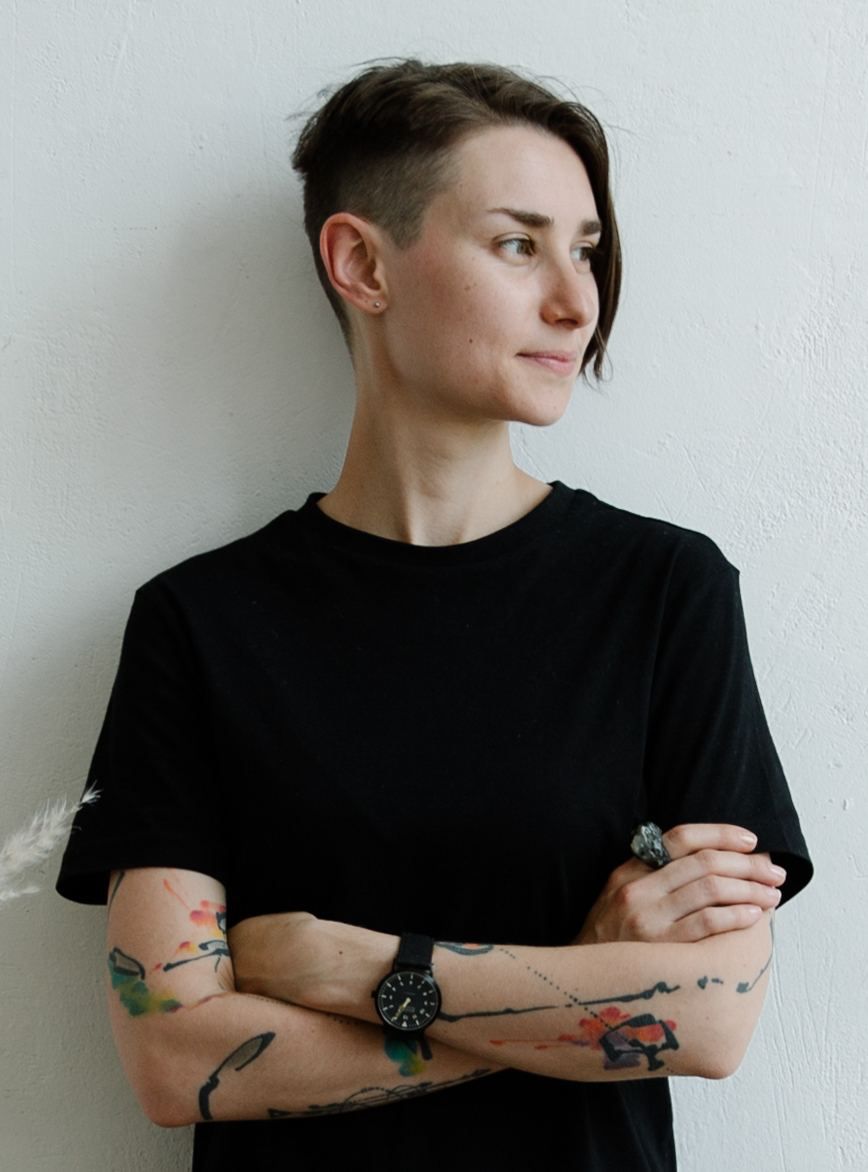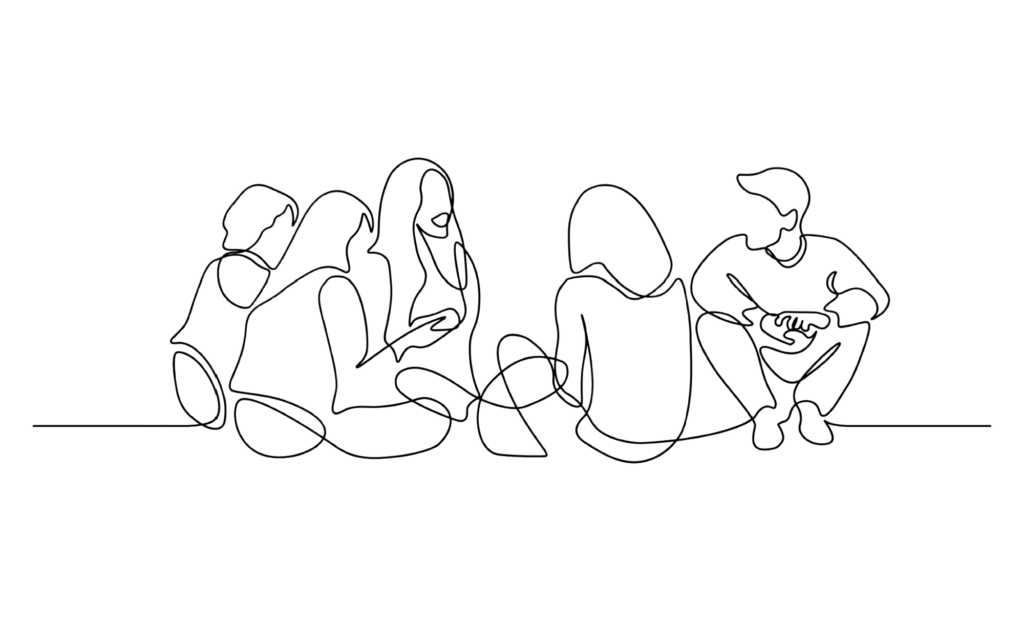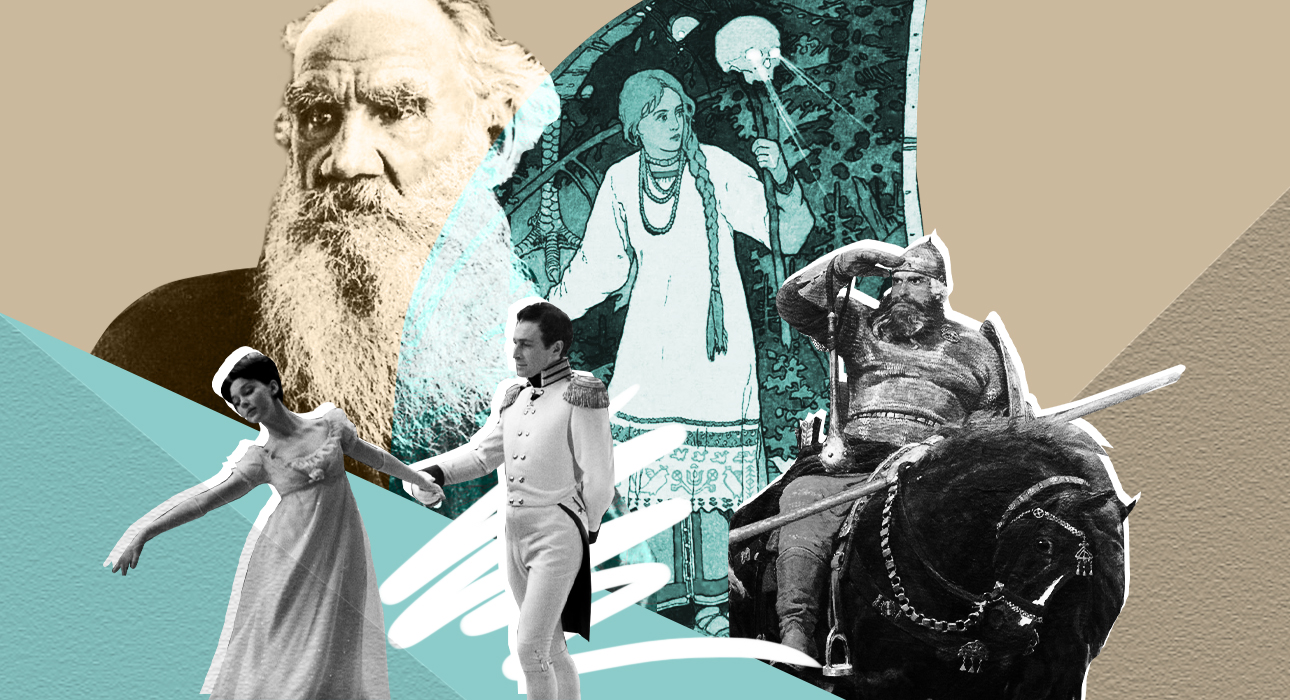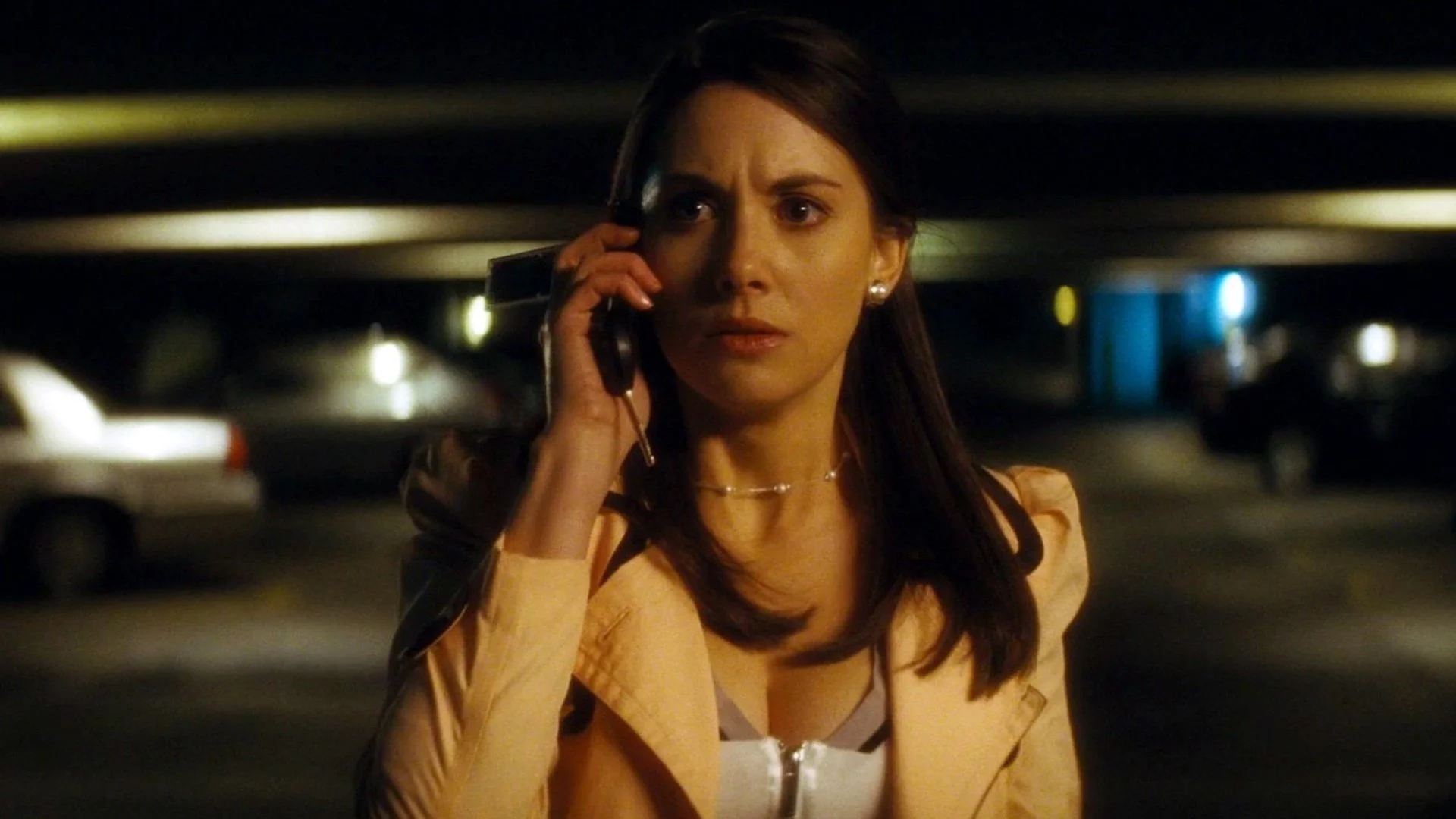Talk about a special Russian character has been doubled, if not tripled, recently. Faced with sanctions, the separation of Western brands and the removal of everything Russian (from athletes to culture), our compatriot, apparently, not only felt deprived, but even remembered the special way of the Russian people about Fyodor Tyutchev. He wrote a century and a half ago: “Russia cannot be understood with the mind. If we believe in the concept of having this very specific cultural code, Russians are more adaptable to problems and restrictions and have a strong spirit. Is this a legend? To understand!

Oksana Moroz – Associate Professor, HSE Department of Media; candidate for cultural studies; freelance lecturer at Synergy University; digital researcher
Candidate cultural studies Oksana Moroz does not believe in the existence of a special Russian character, at least because all people (obviously) have their own characteristics and experience, both professionally and in life: “I can not imagine that we can describe a person. With some uniform parameters from Moscow, Tatarstan and the Far East. If you ask anyone what the Russian character is, they will reproduce stereotypes, stereotypes without independent thinking, they will say that the Russian is a person who can do heroic deeds in inhumane situations. Based on culture, they can say that this is also a lazy, uncontrollable people (everyone remembers the lines about the “Russian rebellion, frivolous and cruel”). It all depends on one’s cultural background.”

Famous anecdotes about “a real Russian woman who will stop a galloping horse and enter a burning hut”, “Russian literature entirely based on tragedy”, “Russian masters working without a nail” can also be remembered. And stereotypes about the Russians as a powerful people, glorified in their historical achievements. And even the almost daily comparisons of Russians with peoples of other countries – we bet you also had conversations after the next trip in the spirit of “there are other people”?
Oksana Moroz assures that, in fact, “typical Russians” remain in fairy tales and epics, from which the Russian legend itself came.
“Speaking about the Russian character is, first of all, an attempt to explain straight and universally the soul of any person who identifies as Russian. On the one hand, this explanation can be reassuring. For example, if I come across some folklore heroes, I can explain my behavior with these characters, then I am a normal person. On the other hand, it is clear that these same general statements and ideas about people do not take into account many features, and those who do not anticipate themselves in these narratives may think that there is something wrong with them. This is how people want to talk about themselves or how they will present themselves, how they will shape their public image.

Psychology does not exclude the existence of a “national character” and, moreover, selects it as a separate field – ethnopsychology. Marina Volkova, clinical psychologist and author of Ok, Clear channel explains: “When we thrive in a particular environment, we are inevitably influenced by its factors; among representatives of a nation – in that people are in a more or less homogeneous environment – they are similar. This allows us to speak of “national character” – stable features in the behavior of people of a particular nation that affect their attitude towards other people, the world around them, life, work and the like. True, he clarifies that this is strictly collective, philosophical, rather than scientific definition, and practically not studied in the professional field, for example, at the level of specialist research and work. But one of those who are still interested in the topic of Russian character, Andrei Konchalovsky, several years ago introduced the term “cultural genome” – a certain set of qualities and moral laws in each culture. He says that the Russian cultural code has not yet been deciphered, but claims that it will help solve the problem of modernizing all aspects of society.

Marina Volkova – clinical psychologist, psychotherapist of the Yasno service, editor of the Ok, Yasno channel
Even before Andrei Konchalovsky, other famous figures of Russian culture, as Marina Volkova recalls, also spoke about the national character. For example, the German philosopher Walter Schubart wrote: “Mediocrity is alien to the Russian soul. Between two extremes. Historian Vasily Klyuchevsky spoke of the influence of Russia’s position: the need to develop rivers instilled in a person the ability to feel part of a great whole, and the plain brought gentleness and modesty, timidity, calmness. The philosopher Nikolai Berdyaev emphasized the duality of the Russian character and tried to combine the incompatible: paganism and Christianity, Europe and Asia, nomadic and settled lifestyle.

Oksana Moroz notes that the idea that the Russians are a people with a special destiny has not only philosophical but also political prerequisites.
“Patriotism, in principle, is a very state thing. This is not a Russian invention, the states of many countries explain to people the conditional rules of the game, permissible norms. In these moments it is tried to generalize the nation, the nation, and one of the ways to do this is to bring some meaning. The code just refers to them.
The phrase “Russian cultural code” sounds good, scientific, and creates the feeling that it is not just a political fabrication, but also about human knowledge. This is not true.
This is an attempt to package people’s desire to create a certain image in beautiful designs.
Psychologist Marina Volkova, speaking of the cultural code as a very specific concept, disagrees: “These are meanings encoded in culture and recognized by those who deal with it. These are language, proverbs and sayings, fairy tales, humor and anecdotes, music, cinema and literature, mythology and religion, philosophy and politics, attitude to reality – parents and children, man and woman, work , homeland, power, rituals and traditions. These cultural values are formed over the centuries, and each generation adds something of itself to the code.”

The other part, which consists of the idea that the Russian people have a special way and that it is a people of heroism, patience, is folklore, which is the result of everyday Christian culture. Oksana Moroz calls this an attempt to explain in understandable categories how society behaves in certain situations: “For example, a story about fatalism and a heroic people comes from the Great Patriotic War, which was actively idealized. For example, since then our people came out victorious, then the qualities inherent in people are not variable, but universal, they work. If we start meeting people individually or collectively, we will realize that their personal trajectories can be completely opposite.”
In general, Russians are most often referred to as “successful people”, and even Friedrich Nietzsche, Marina Volkova’s “Ecco Homo. How can one become one’s own” he wrote: “… I say Russian fatalism, that surrendered fatalism in which a Russian soldier finally lies in the snow when a military campaign is too burdensome for him. Do not accept anything else, do not allow yourself, perceive in yourself – no longer react at all … The deep meaning of this fatalism, which is always not only the courage to die, but also protection under the most life-threatening conditions … “

If you look at the historical events that the country has gone through, it may seem like the Russians are the kind of people who really know how to adapt. However, as Oksana Moroz points out, this type of reasoning often lacks a comparison (and if it does, it seems out of context – Russians, for example, are compared to Europeans with different lives and circumstances), and they also try to explain. existence of a people as a close-knit team of unified will.
“Of course, such beliefs help people during crises – so they feel that they are not alone in problems, but have a historical background to lean on.
For example, it was bad before, but we came together and now we will come together.
Most of the time, people weren’t very good in the 90s, but when they say we got over them, they take an ideological stance. It was unhealthy in any decade, but we made it.
This is an attempt to reassure ourselves: we can because there is a national character.
Although it is clear that he will not help in any way in solving individual problems: he will not find you a new job, he will not treat your loved ones. People are social beings, they need a sense of belonging, a sense that they are not alone.”
His words are confirmed by psychologist Marina Volkova, who adds that we are not European or Asian and are truly unique in that sense: “We are on our own – and in this sense we can feel a weak connection with them. It is our identity, but it “awakens” the crises we face. Through them we “remember” that we are Russian and what it means to feel and live.” Even now we see a clear example of such “anti-crisis” measures: “Otherwise the issue could have been limited to one package instead of six packages of sanctions. But people show patience and harmony, even indifference in some ways, along with a good mood and determination. The Russian character is characterized by enthusiasm, which is difficult to extinguish if it flares up, as well as enterprising, the ability to adapt in any situation and find a way out.
But, summing up, Oksana Moroz states that the attempt to reduce the idea of a separate society to single parameters in the modern world is a “dead end”. “First, it does not take into account the differences between folklore norms and modernity. Second, it does not take into account the fact that there is a huge difference between “Russian” as an ethnic group, citizenship and nation, which is often put on an equal footing between Russian and Russian. Thirdly, it does not take into account the fact that each person has his own life trajectories that do not fit into the Russian national character. In the same stereotype of people, he sees the global problem of the world: “Many cultural, economic and other intersections have emerged over the decades.
We are all international to some degree.
In general, access to vast amounts of information and a range of views erodes rigid ethnic and cultural traditions.

Yes, the stereotype about a particular Russian character has been established for decades (if not centuries) and perhaps still works as an “anti-crisis measure”, but the question of its real existence seems to fall more into the realm of philosophy. . Historical background, religion, even fairy tales and family traditions justify Russian fatalism, but with a banal lack of education it ceases to make sense, and for every reason a national character really has a place to be, there may be a reason for this. not so. It is considered a political tool as a result of deep religiosity as a relic of the Great Patriotic War. And as long as the need for it continues and emerges in every crisis, talking about it will not diminish. Is it for the best? Time will show us.
Source: People Talk





